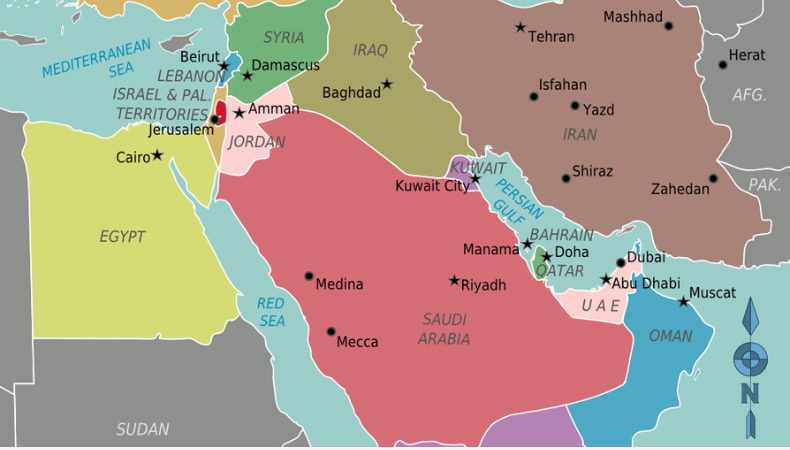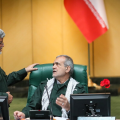A Breakdown of What Russia Wants with the Middle East

Widespread attention and study have gone to Russia’s comeback as a major Middle Eastern power. Moscow’s complex regional goals are motivated by a mix of historical legacies, geopolitical aspirations, and economic needs.
Clarifying Great Power Status
Reaching back Russia’s Middle East policy first is the drive to restore her prominence as a major world power. Historically, Russia has kept military and diplomatic relations with some Middle Eastern nations going back to the Soviet era. Moscow wants to question the dominance of the United States and other Western nations today by actively participating in regional issues and building partnerships. By using regional dynamics to improve its worldwide posture, Russia’s strategic orientation helps it to demonstrate its geopolitical relevance.
Fighting Extremism and Guaranteeing Stability
Russia sees extreme ideas coming from the Middle East as directly endangering her internal security. The history of the area supporting extreme parties and movements raises questions about stability and possible spill-over into Russia’s borders. Moscow supports governments and groups who reject radicalism in order to reduce these hazards, therefore generating a buffer zone against radicalization. Russia hopes to protect its national security interests and stop the spread of terrorism by encouraging Middle Eastern stability.
Following Economic Interests
Economically, Russia’s oil diplomacy finds a major venue in the Middle East. Moscow, a top exporter of energy resources worldwide, especially gas and oil, wants to confirm its place in the profitable energy market. Russia’s long-term economic plan depends critically on strengthening economic links with Middle Eastern countries by means of energy cooperation, infrastructure projects, and investment partnerships. Russia wants to increase its economic resilience among world uncertainty by getting energy contracts and diversifying its economic activities.
Military Attachment and Strategic Impact
Advancement of Russia’s strategic goals is much aided by its military presence in the Middle East. Agreements with the Syrian government allow Moscow to develop military sites in Syria, therefore serving as a vital operating center in the area. These bases help Russia to influence regional security dynamics, project military capability, and engage in terrorist activities. Furthermore, Russia’s military presence improves its capacity to influence diplomatic negotiations and arbitrate disputes, hence supporting its major involvement in Middle Eastern geopolitics.
Handling Complicated Regional Dynamics
Russia’s Middle East policy suffers great difficulties negotiating the complex web of regional conflicts and alliances. Dealing with big nations as Iran, Israel, Saudi Arabia, and Turkey demands both strategic foresight and smart diplomacy. Moscow wants to keep pragmatic alliances while avoiding engagement in regional disputes that would compromise its more general goals. Russia wants to keep its influence and help the Middle East to be stable by using a complex approach to regional diplomacy.
Obstacles and Geopolitical Dangers
Russia’s Middle Eastern activity carries hazards and difficulties as well. Moscow’s strategic interests are naturally threatened by the turbulent geopolitical scene of the area, which is shaped by continuous conflicts and geopolitical rivalry. Russia’s activities in Ukraine and Crimea have caused an international reaction that has resulted in diplomatic isolation and economic sanctions, therefore affecting its capacity to implement unbridled policies in the Middle East. Further complicating Russia’s strategic calculus is rivalry from other world powers seeking influence in the area.
Future Possibilities and Changing Approaches
Looking ahead, Russia’s Middle Eastern engagement is probably going to change in reaction to shifting geopolitical circumstances and internal factors. Although the strategic goals of the Kremlin could change with time, Russia’s Middle East strategy is projected to remain mostly driven by the fundamental imperatives of projecting global dominance, opposing extremism, and safeguarding of economic interests. Moscow’s capacity to use diplomatic, financial, and military instruments will determine its impact and presence in the Middle East for years to come as it negotiates the complexity of regional geopolitics.
Final Thought
Russia’s strategic involvement in the Middle East emphasizes its multifarious approach to international relations, which combines geopolitical aspirations, historical links, and economic needs. Moscow’s ongoing assertiveness in the area would surely affect Middle Eastern geopolitics’s dynamics by means of Russia’s activities and strategic choices. Russia’s Middle Eastern influence will always define global geopolitics whether via military operations, diplomatic projects, or commercial alliances.





